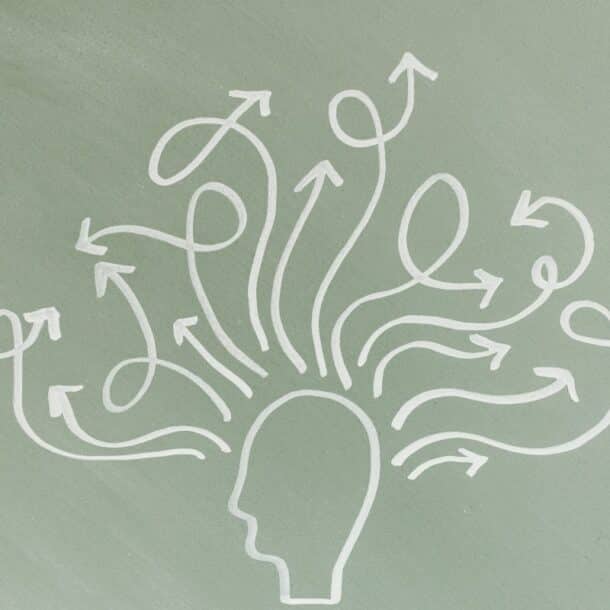
Peer Support and Community Involvement in Recovery
Developing peer support and a community can greatly benefit your addiction recovery journey. This is especially true for the early stages of recovery. When you start your journey to stop using substances, it can feel like a lonely time where no one understands you. Being a part of a group of peers can help you feel connected.
At Healing Pines Recovery, we aim to help men build peer support and develop a sense of community and connection. Being able to share your accomplishments and struggles with others can help you feel connected and build a healthy environment. It can also make you feel more comfortable sharing your experiences and cultivating trust. Having peers that are there to support you can also help if you don’t have any other relationships that provide a solid support system.
What Is Peer Support and How Does It Benefit Recovery?
Peer support is having individuals in your life who you trust and have a connection with. Peers can be people who share similar experiences and struggles as you. Building deeper connections is the goal of peer support. Then, when you are experiencing difficult times, you can feel comfortable turning to your supportive peers.
There are also those who work as peer support workers. The Substance Abuse and Mental Health Services Administration (SAMHSA) provides further details on who peer support workers are. Essentially, they are there to provide you with resources and skills to manage and cope with challenging times.
Group Therapy Support
At Healing Pines Recovery, we use group therapy sessions to build our community and provide you with healthy peer support. These types of sessions allow you to share what is on your mind and listen to different perspectives from others. This can also help you find a new outlook on things you may have viewed in a negative light. During group therapy, it is also important for others to hear about your experiences and the insight you have into them.
Why It’s Essential to Be Involved in a Recovery Community
Being a part of a recovery community means that you are not only listening and receiving help but are providing it to others as well. Group sessions are a great opportunity for you to share what you have personally gone through. Describing how you felt during the early stages of your recovery can help others who are at that phase of their journey.
Building connections with your community can also motivate you to continue going to group sessions. This can help you avoid isolating during treatment. Of course, getting guidance from your therapist is important, but so is hearing the real-life experiences of others.
Being active in your recovery community can also help you understand self-love. It can be hard to feel love for yourself when you can only see the negative side of your actions. In a group setting, your peers can help point out the positive changes they have seen you make. It can be hard to see how far you have come in your recovery journey, but your peers have a different perspective and can share it with you, enabling you to acknowledge your growth.
Why Sharing Your Experiences Is Important in Early Recovery
Sharing your experiences can be even more impactful during the early stages of your recovery. It is during this time that you may be feeling at your lowest and that no one understands what you are going through. When you share with a group of peers, it allows others to create connections with you and relate to your stories. Seeing how others go through similar circumstances and experiences can give you a different perspective.
It is also essential to share so that you can feel a part of your support community. According to SAMHSA, there are “four major dimensions of recovery,” one of those being community. Having a community affords you relationships and social networks that provide support, friendship, love, and hope. These are all important things during early recovery.
When you are sharing in a group, you are not just expressing your feelings about what you are going through; you are providing support and receiving it from others. Having those healthy relationships plays a tremendous role in a healthy recovery.
When you feel safe and comfortable with those around you, you can begin to learn to trust others – and yourself. Listening and learning from other people who are at different stages of recovery can provide you with new perspectives and insight, a sense of belonging, and hope. And once you have progressed in your individual journey, sharing your experiences can provide those in early recovery with that same sense of hope for a healthy and more meaningful future.
An important part of addiction recovery is having peer support and being involved in a recovery community. Having peer support can help provide you with a sense of connection and alleviate the feelings of being alone. While others share their stories and experiences in a group setting, it is important that you share yours as well. Sharing your own experiences can help other members of the group, especially those who may be in the early stages of recovery, feel more comfortable and relate. Sharing your experiences is crucial for your healing as well. At Healing Pines Recovery, our community of men support each other. If you or a loved one needs support, call us today at (720) 575-2621.
Paul Leafstedt
Paul was born and raised in the beautiful state of Colorado. He went to college in California at CAL Poly Pomona, majoring in Mechanical Engineering. Being a person in recovery and always finding fulfillment in helping others succeed, Paul co-founded a treatment center in California with 4 other partners. Paul came back to Colorado to continue his journey in the field of addiction, and to share his vision for Healing Pines Recovery. “Colorado is such a magical place for me, its natural beauty and peace lend itself for the perfect environment to connect with yourself and others. Healing Pines is different, it’s real, you can feel it. What you see is what you get here. This is a safe place to dig deep and be vulnerable, to re-discover yourself, what the world has to offer and what you have to offer the world.”Begin Your Journey & Escape Addiction
The first step can be the hardest. Fill out the form or call us at (720) 575-2621. You will be connected with a Healing Pines Recovery specialist who can answer your questions and help you get started.
Let Us Help You
Speak to Someone Right Now







